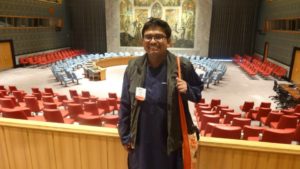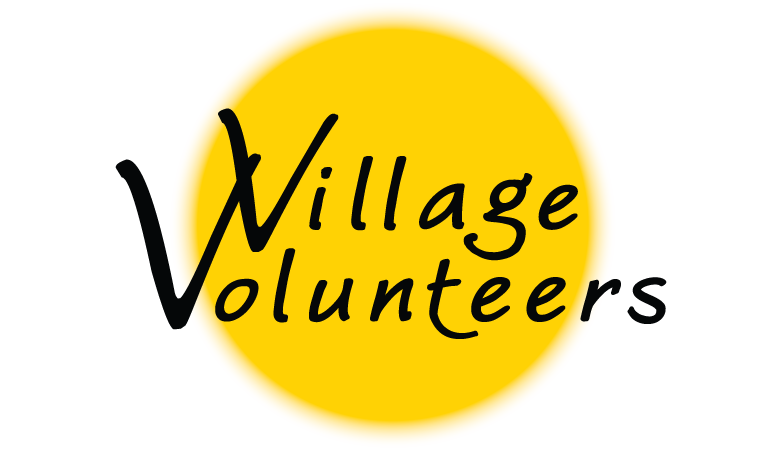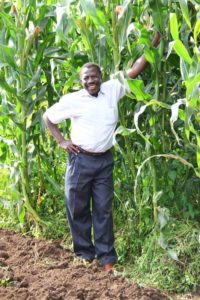I met Joshua Machinga of Common Ground for Africa in 2001, Joshua and I knew almost immediately that we would work together to support local farmers as we shared a deep concern for the erosion of sustainable farming methods. But what also struck me was his consideration for women’s rights in his community. Unsurprisingly, CGA found ways to translate its commitment to ensuring equality and opportunity for the most vulnerable young girls in society into what’s known as Lenana Girls’ High School – a high school where nearly 60 young women are enrolled in classes that focus on practical, business and entrepreneurial skills which will help them earn an income once they graduate. CGA also setup the SiSi Fund in communities in and around Kitale, through which women submit business plans for their proposed micro-enterprise and receive funding. Through the SiSi Fund women are connected with donors who are willing to fund their businesses. The SiSi Fund is almost exclusively for widows who continue to be one of the most marginalized groups in Kenya, largely due to strong paternalistic practices and cultural attitudes prevalent in society. With limited access to credit from formal lending institutions (as women usually lack collateral, i.e. land, after the death of her husband), CGA works with a number of widows’ groups, each with about 30 active members. It was estimated that in 2014, the SiSi Fund directly assisted over 500 widows with financial, logistical, agricultural and healthcare assistance. But the larger community impact that these women have (the number of children they’re able to feed, send to school or take to the hospital) is quite frankly immeasurable. Recently, the Lenana Girls School students have received funding for their entrepreneurial businesses. It’s safe to say that CGA, under Joshua’s leadership, is patently measuring up to the organizational goal of ‘expanding and promoting the fair and equitable involvement of women in the development process.’
Joshua is one of many formidable men we partner with who recognize that men are an inextricable part of the solution when it comes to women’s empowerment. In all our work that is geared towards enabling young girls and women to acquire access to opportunity (be it employment, education or health care), we stress on one truism – men are not the enemy, and empowerment does not imply power over men. As many have said (here, here and here) – equality is not a zero sum game. There’s ample evidence to suggest that when women prosper, men prosper, families prosper, and communities prosper. When we were brainstorming names for the Empowering Women Period (EWP) program, we were conscious of our choice of the word ’empowerment’ – polarizing men would be counter productive to global efforts for gender equality. For us empowerment comes with equitable access.
For the EWP program, we are fortunate to partner with Aakar Innovations in India with good friend Jaydeep Mandal, an active champion for gender equality and women’s health issues. Women in the enterprises set up by Aakar Innovations receive a sustainable source of livelihood, while helping educate their peers on proper menstrual hygiene. Unless men participate, if not initiate, the dialogue around taboo topics like menstruation and reproduction, there’s little hope for women in developing communities (where men often exert control, physical and otherwise) to feel secure with their natural body functions. We are thoroughly excited to begin working with Jaydeep and team on our own water hyacinth sanitary pad program at New Light in Kolkata which will bring a safe and hygienic feminine hygiene product, a source of livelihood and health insurance to women who need it most.
For communities wherein girls’ development is impeded by centuries’ old customs and traditions, the need for men to lead the way to gender reform is paramount. Leaders like Emmanuel Leina Tasur from Namunyak Maasai Welfare (NMW) in Kenya are paving the path for girls in their communities to go to school, earn their own livelihood, marry later, and be role models for their peers. This extraordinary leader is changing the educational landscape for all children in the Maasai community in Kilgoris, where NMW is based. The changes are exemplified by Emmanuel’s daughter Sharon Leina who wrote a powerful blog post on the Maasai girl child a few months ago. Sharon writes, ‘Early marriage is the most often cited reason that Maasai girls drop out of school. [They] are taught that circumcision is a rite of passage into womanhood that accompanies puberty and is an immediate precursor to marriage. Once circumcised, girls are ridiculed by their peers if they continue their education, since school is for children. … There are also economic incentives for early marriage. A daughter’s marriage increases the wealth of Maasai girl’s family through combined cattle and cash dowries and her father is relieved of the economic burden of supporting her.’ We can be hopeful for debilitating traditions like female circumcision and child marriage to be eradicated over time among the Maasai community in Kilgoris where fathers like Emmanuel are leading by example. NMW’s Sirua Aulo Academy enrolls more and more young Maasai girls every year, which means there’s an increased chance for them to be viewed as contributing members of the community as opposed to child brides that would fetch a dowry.
Despite being part of communities where a large majority would like to stymie reforms in favor of women’s empowerment, or at the very least resist them on grounds of ‘preserving tradition’, many of our male partners keep calm and carry on. Joshua, Jaydeep and Emmanuel are just three of the leaders we work with among a team of countless other men who know that for the greater ideal of social justice, we need to begin at home and ensure that there’s equal opportunity for every member of the family.

